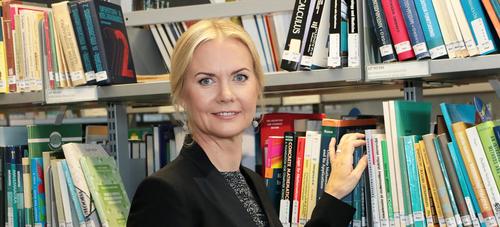
The first Padegs Fellow at Yale, Dr. Eneken Laanes from Tallinn University, has won a major grant (1.5 million Euros) funding a research project titled “The Eastern European Past in the Global Arena.” Read the following article from Tallinn University’s School of the Humanities about her award and research project.
At the beginning of next year, the five-year project ‘Translating Memories: The Eastern European Past in the Global Arena’, which was awarded a prestigious grant of 1.5 million euros by the European Research Council (ERC), starts under the leadership of Eneken Laanes, Associate Professor of Comparative Literature and Culture Analysis at Tallinn University.
Eneken Laanes and her team will investigate how the memory of the Second World War and the Soviet regime in Eastern Europe has been brought to the global arena through literature, cinema, and art.
After the fall of the Soviet Union, the countries of Eastern Europe have fought on a political level for the global recognition of their history. Laanes explains that in that struggle, there have been many comparisons between the Nazi and the Soviet regimes, between the Holocaust and Soviet repressions, which has caused a lot of misunderstanding in the world. According to Laanes, the feeling that our history and its specificity is not understood has been prevalent in many Eastern European countries.
Making local history comprehensible
‘On the other hand, there have been many books and movies in recent decades that have taken the Eastern European history to the global arena, created a lot of international interest, but also provoked debate in the local context of whether or not the image of the past created by a book or a movie is correct,’ she explains.
The novel Purge by Sofi Oksanen, which caused a fierce public debate in Estonia some ten years ago, is one example. Similar occurrences followed Pavel Pawlikowski’s movie Ida in Poland and Florian Henckel von Donnersmarck’s movie The Lives of Others in former East Germany.
‘Our research will focus on exploring how literature, cinema, art, and the public debates they create in society can help us to emerge from the political deadlock and make local history understood on the global arena,’ the project leader confirms.
Laanes thinks that literature, cinema, and art are good research objects exactly because they travel globally and the images of the past they create reach people around the world better than historical studies or political arguments over history.
One strength of the project ‘Translating Memories: The Eastern European Past in the Global Arena’ is that the it will not study literature and film only as aesthetic objects, but will examine them in the larger context of memory politics. The scholars will explore the aesthetic and political debates different works have created and how state intervenes in the production and distribution of certain images of the past through novels and movies, etc.
Great recognition
According to Eneken Laanes, it is important that ERC has found Estonia to be a good place to conduct this kind of comparative research of the memory cultures of Eastern Europe. ‘I consider it a sign of great trust and recognition.’
Katrin Niglas, the Vice-Rector for Research at Tallinn University, finds the ERC grant to be proof that Eneken Laanes is a young world-class scholar. Niglas further emphasises that the strategic decision made by the University Senate and strong teamwork also contributed to the success.
The project will employ seven people: two experienced scholars, two postdoctoral fellows, and three doctoral students. All of them will be recruited through international competition. The team members will have to have relevant linguistic skills and be familiar with local memory cultures.
ERC grants are some of the most prestigious in Europe. Tallinn University is the only Estonian university whose scholar was awarded an ERC research grant this year.
Unlike many other calls for proposals, the ERC research grant is fully open to all subjects. The Vice-Rector for Research points out that winning the grant therefore means that Tallinn University engages in the research of innovative and globally significant topics. ‘This is one of several large prestigious grants in humanities we have received, which proves that we are operating at a top international level,’ Niglas says.
This is the second ERC grant for Tallinn University. The first ERC grant for Tallinn University was awarded to Professor Liisi Keedus in 2017 for the project ‘BETWEEN THE TIMES – Embattled Temporalities and Political Imagination in Inter-war Europe’.

